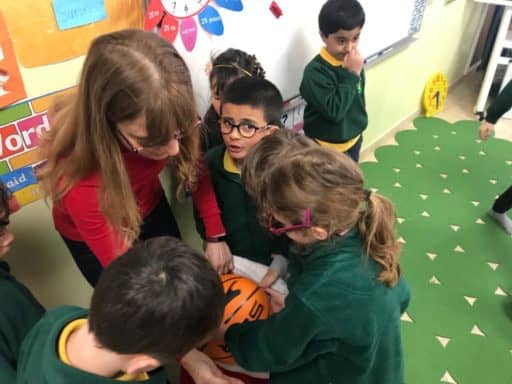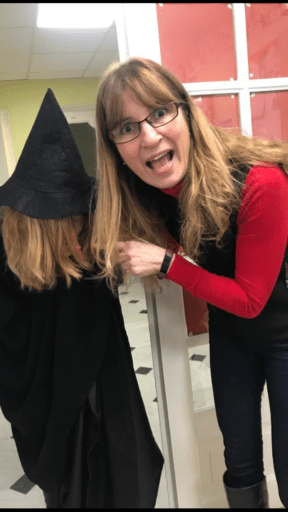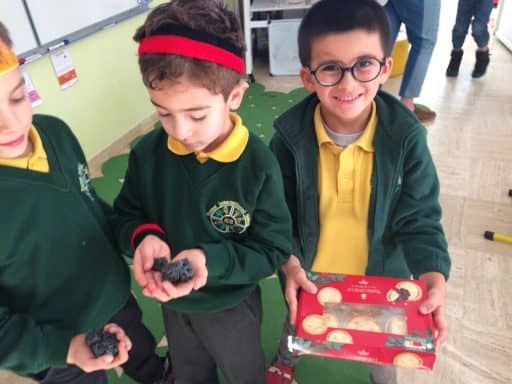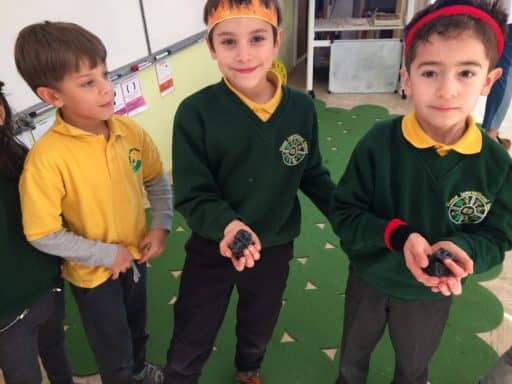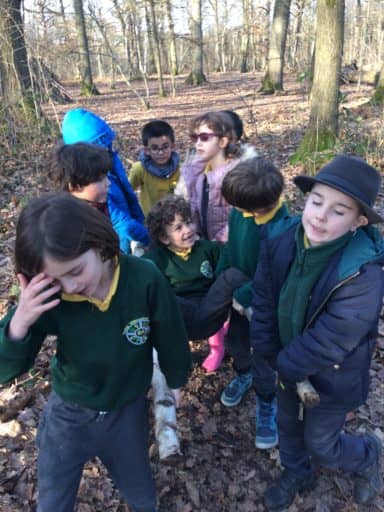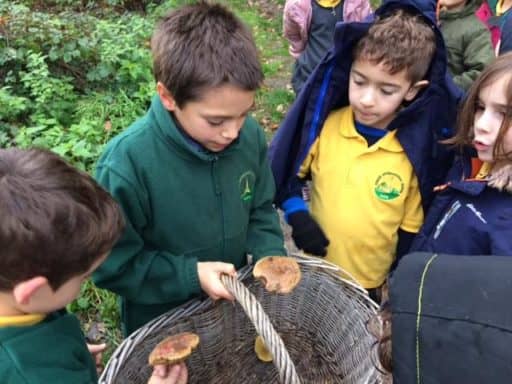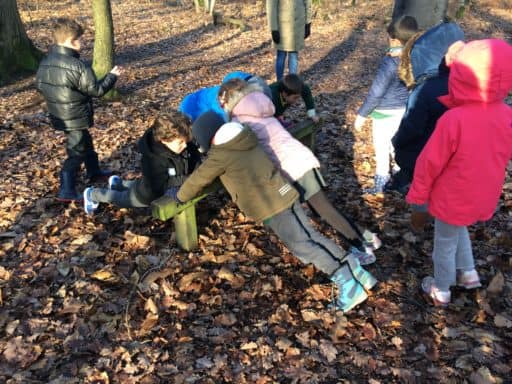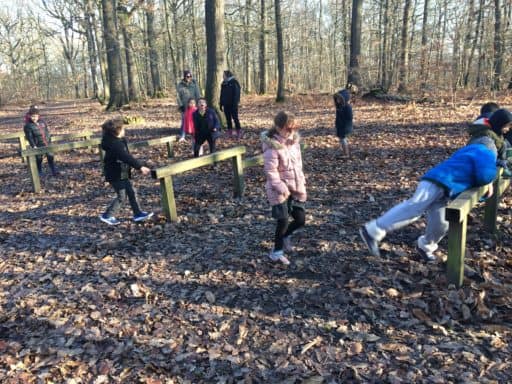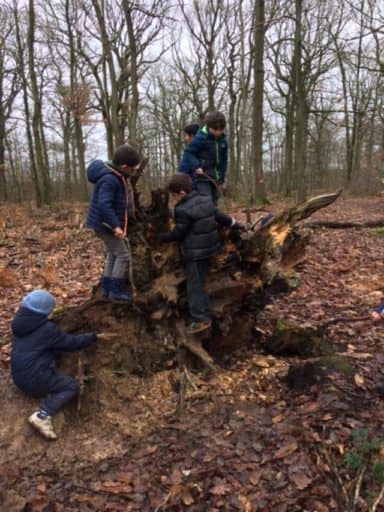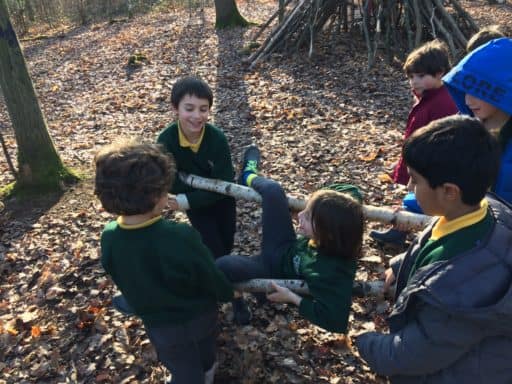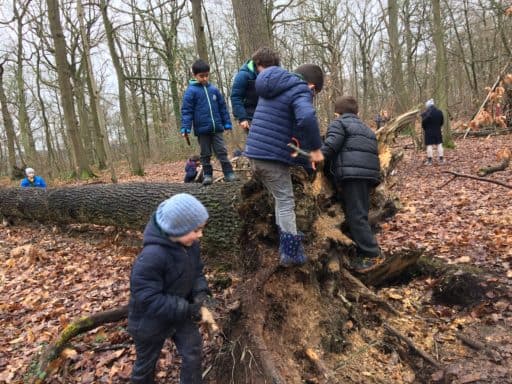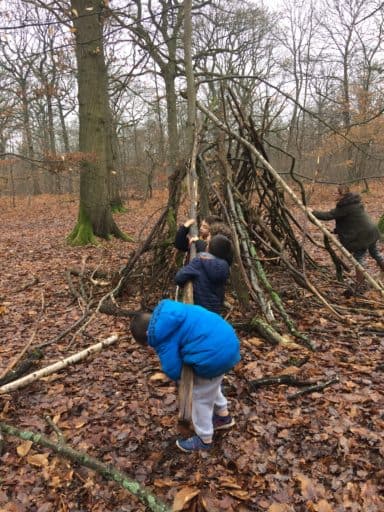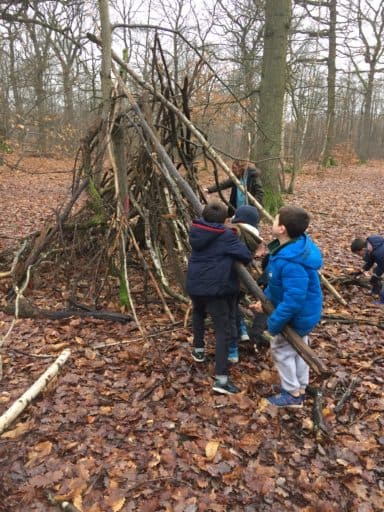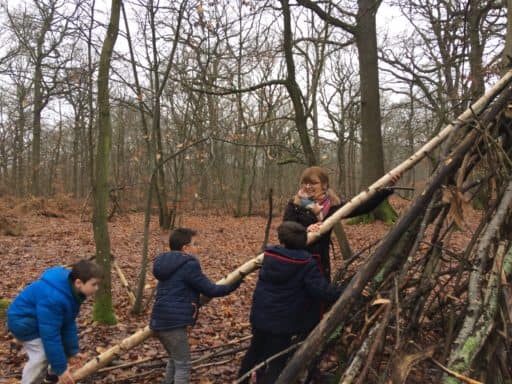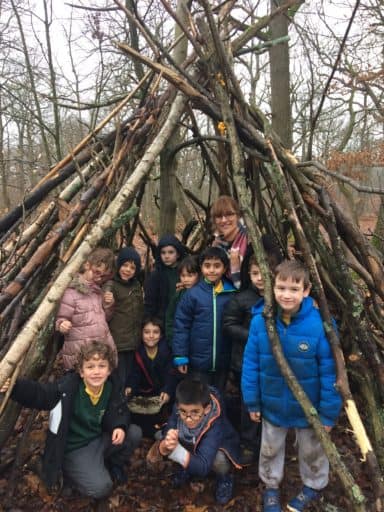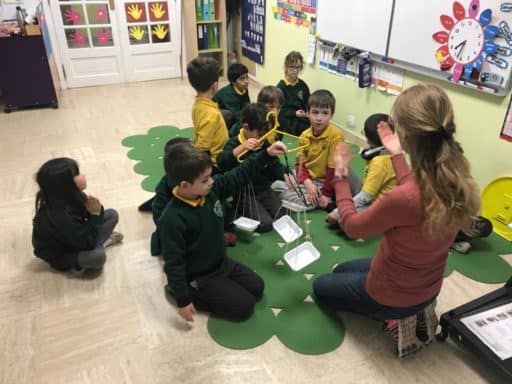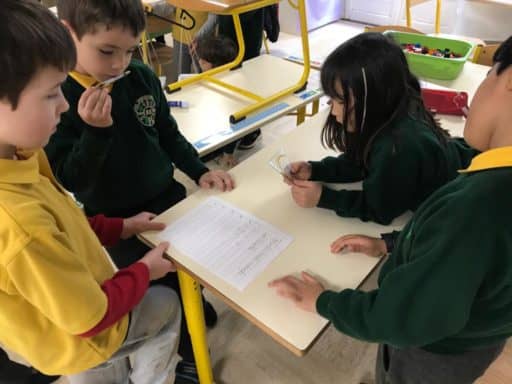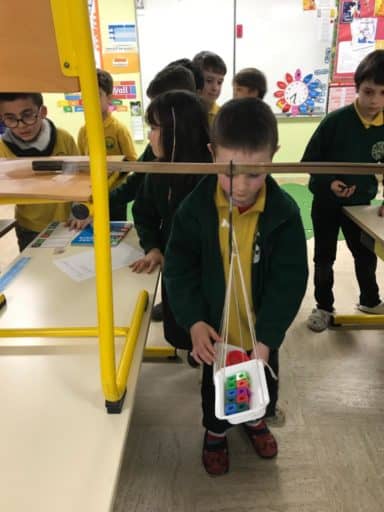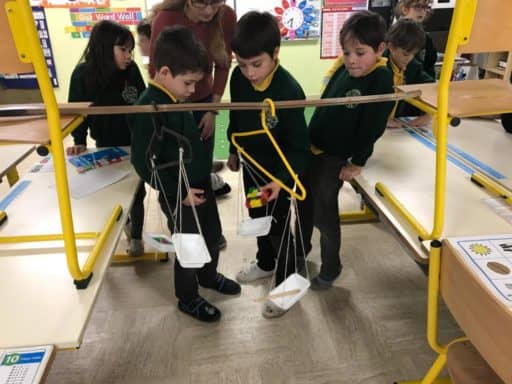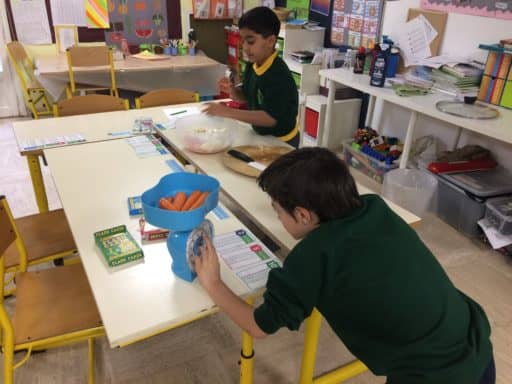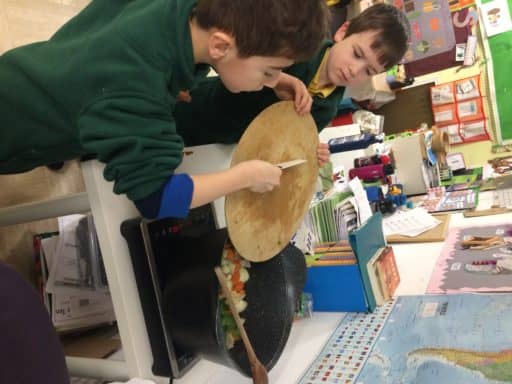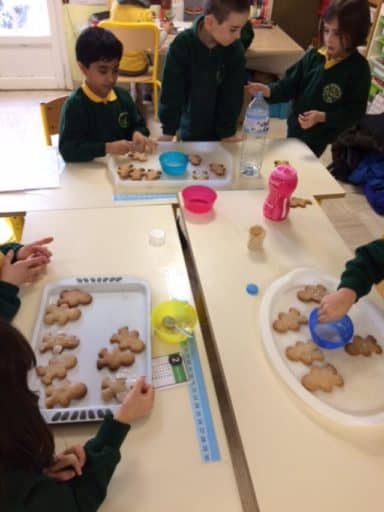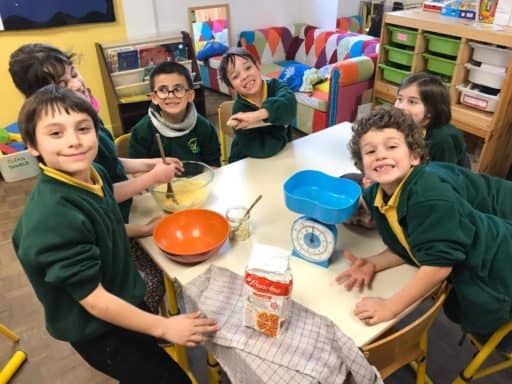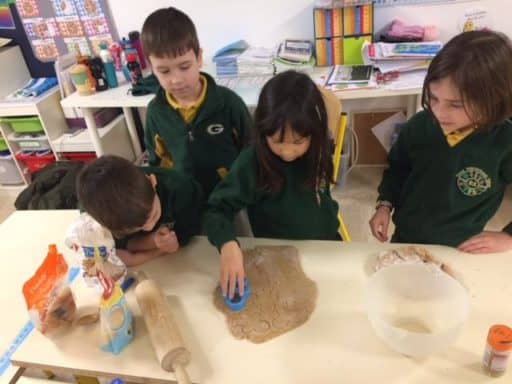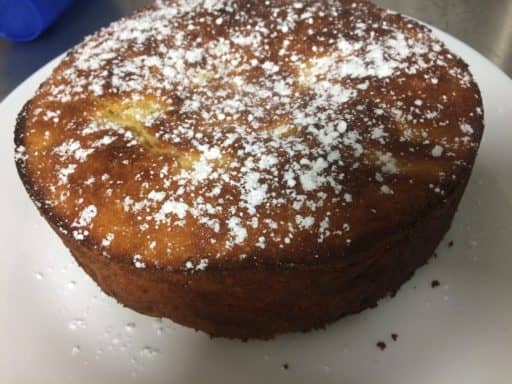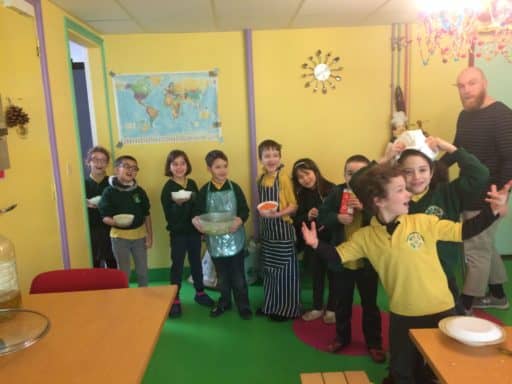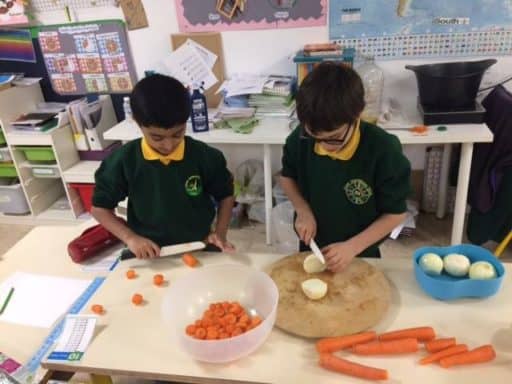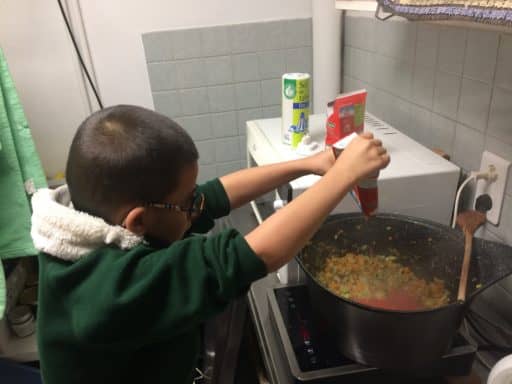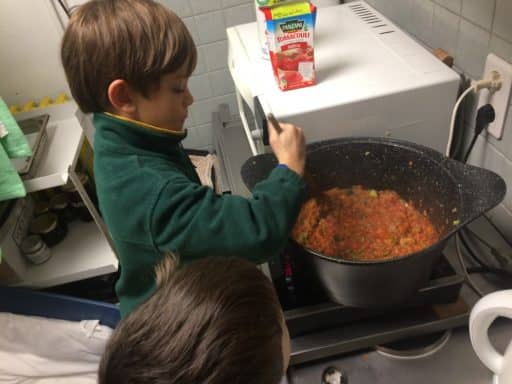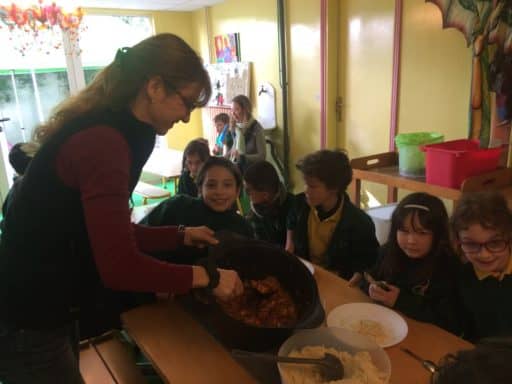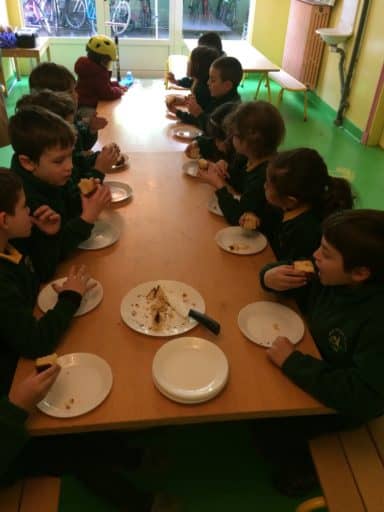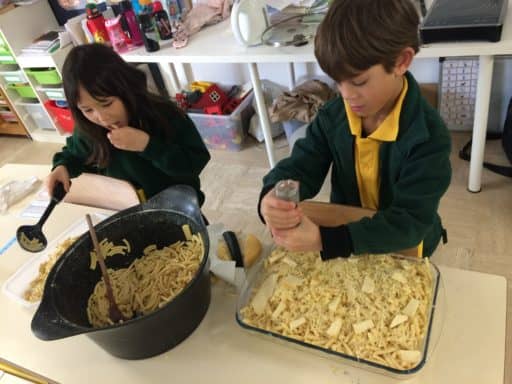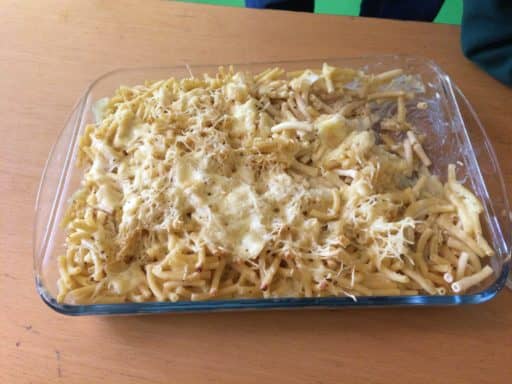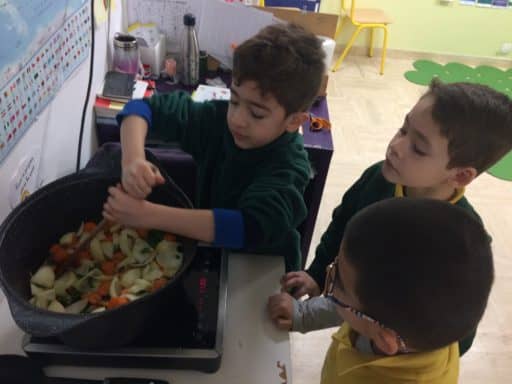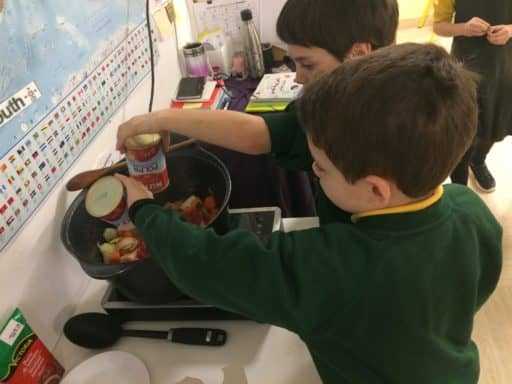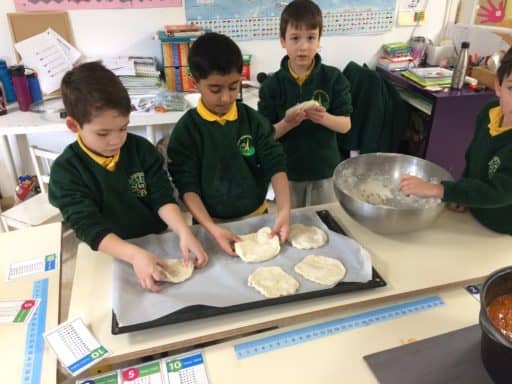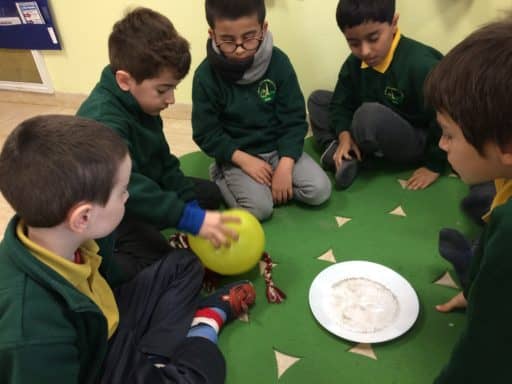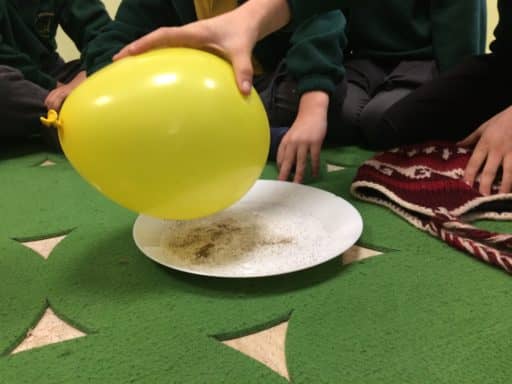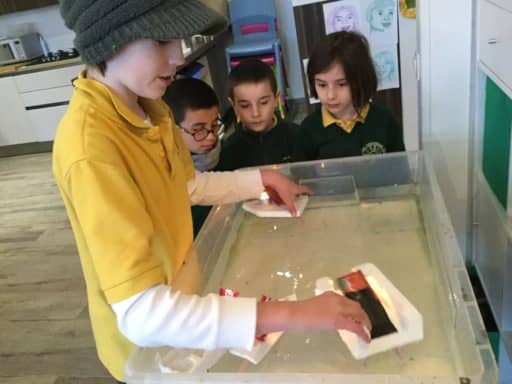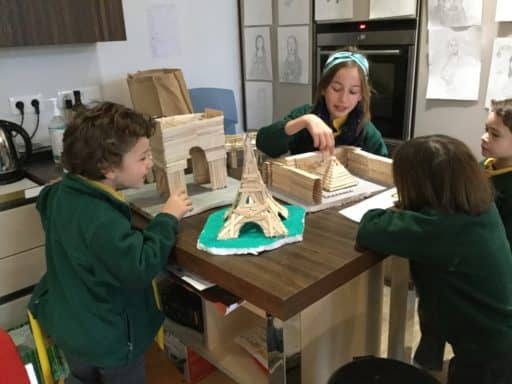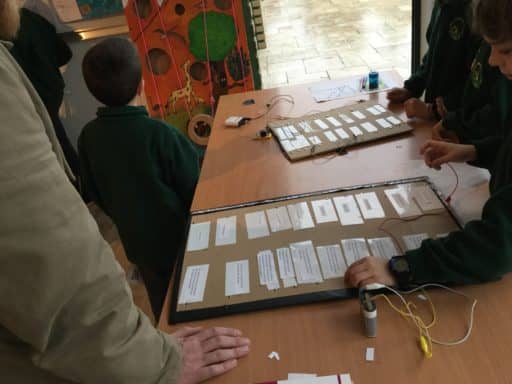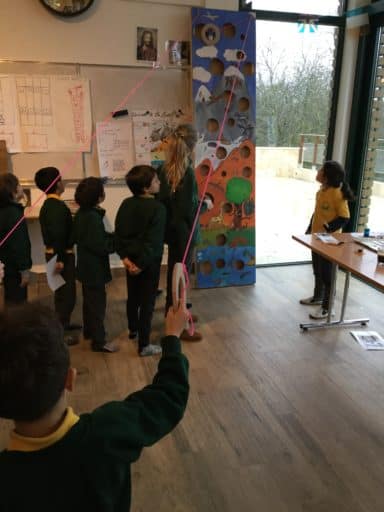If you want your children to be intelligent, read them fairy tales. If you want them to be more intelligent, read them more fairy tales.
Albert Einstein
Once upon a time there was a school in a forest…
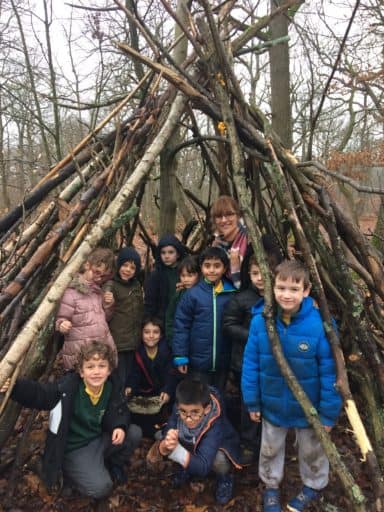
Term 3 was the fairy tales term that has seen kids and teachers busily engaged in exciting activities and adventures!
On the very first day back to school, after the Christmas holiday, we had an unexpected visit from far, far away: the Old Befana from Italy! The good witch flying on her broom stick who, all of a sudden, knocked at our door. She had decided to stop at our school to deliver sweets and presents to the kids in Birch class. What a big surprise! The kids were overwhelmed with excitment. We received 2 footballs, a basketball, 2 dodgeballs, books and sweets! Most of all we learnt about the legend connected to the 6th January (the Epiphany day) in Italy.
Literacy
Speaking, Listening and drama
The IPC theme for this term was: Stories people tell. Children have been learning about fairy tales, myths, legends and fables from different countries and cultures around the world. They have also been learning about the lessons and the morals behind the stories. Through discussions and little debates, pupils have been practising making inferences, and describing the characters of the story (using interesting adjectives). We read the Greek myth ‘Theseus and the Minotaur’ and had a little debate on Theseus’ dilemma: “How fair was it for Theseus to leave Ariadne on Naxos island instead of taking her with him to Athens?”. We had interesting answers and all the children were eager to take part in the discussion.
We had many read-aloud sessions which the pupils loved! We read The Gingerbread Man, Goldilocks and the Three Bears, The Gruffalo Child, Snow White and the Seven Dwarfs and we acted out some of the stories in the forest! It was interesting to see how the children got engaged in speaking independently, listening and responding to various settings, and developing their creativity. Through drama, children have the chance to explore characters, situations, issues and dilemmas and develop interpretation, sequencing/ structure, vocabulary and story language. It’s so rewarding and amazing to see children who speak English as a second language, make such a huge improvement in listening and responding!
Reading
In addition to the read-aloud sessions, in class and in the library, the children have been doing independent silent reading every morning, shared reading and guided reading at least once a week. This is also an opportunity for the teacher to check the progress of the pupils. The beginner readers are taught to use their phonics knowledge to recognise phonemes and blend them together to read words. As this process becomes automatic, children are then able to focus on comprehension. During guided reading, Birch class is splits in groups of 2 maximum 3 pupils and the reading is followed by a comprehension activity (in writing for some groups) which is also developed through lots of talks and the exchange of ideas.
All the children in Birch seem to make very good progress in reading, they are enthusiastic about any book and they also love reading the homework book (from the Oxford Reading Tree Scheme) that is sent home one a week (on a Friday).
Creative writing, phonics and spelling
This term we had many guided writing sessions, where children had the opportunity to develop their independent writing skills. Specifically, the children have been taught how to apply grammar, punctuation and spelling skills in ways which are interesting. Grammar points taught are verbs, nouns and adjectives.
For creative writing the children have been encouraged to change the end of some fairy tales, making up their own happy ending. They came up with a new Gingerbread Man story with a twist at the very end: the lucky escape of the main character who got grabbed by an eagle (a bald one!) and then dropped sound and safe on the other side of the river!
Last but not the least, presentation and handwriting have been important, for this reason children have been practising hand writing at least twice a week.
Spelling practice has been one of the main focus in literacy. The children are working at their own pace, as a consequence we have different spelling level in the class, although most of the children are working on the next 200 first sight words (read and write).
Most of the phonemes (ie: -igh, -ea, -ee, a-e) and digraph in phonics part 3, have been taught, included short and long vowels.
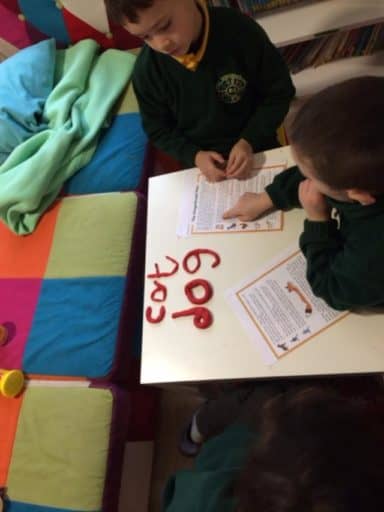
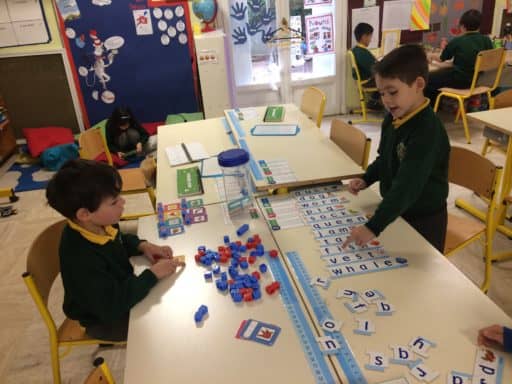
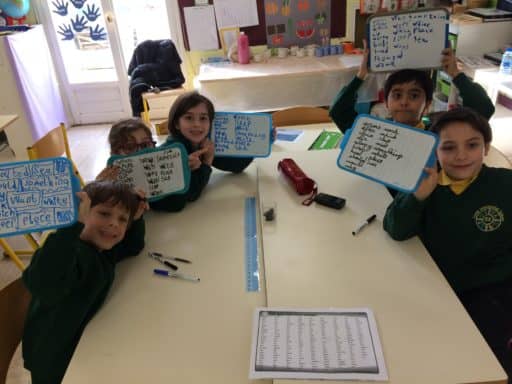
Who is up for a spelling competition?!
Numeracy
In this term the big focus for numeracy was mental maths, the ability to work out calculations quickly in you head. The children have been taught strategies to add, subtract and multiply small and bigger number without using the number line. Breaking numbers in chunks, grouping by 5 and 10 and practising timetables, has been a daily activity for all the class. This allows the children to answer mathematical facts faster which is useful in school and in everyday life.
Working out mental maths requires strong memory skills. Maths facts and other number concepts have to be retrieved from long-term memory. For this purpose, we also practised number bonds and the 2/5/10 timetables.
Children develop mental maths at their own pace. When they struggle with mental maths it could be that they need more time to practice every day.
More complex number patterns and sequences have been practised, in addition to words problems involving addition, subtraction and multiplication (also division for some lower KS2 pupils.)
Another important numeracy topic for this term has been measuring height, length and weight (mass). The children enjoyed measuring each other using the measuring tape, and making estimate (guessing) about teachers’ height and trees in the forest! They also learned how to compare eights and record the findings in their books.
Measuring weight has been a lot of fun! Starting with making a balance scales to compare the weight of different objects in the classroom…
…to using scale to measure the ingredients for the recipes at the Let’s get cooking club!
You see kids cooking. I see…reading, measuring, estimating, maths, following directions, collaborating, listening, problem solving and tasting food! Someone has been caught on camera trying out the macaroni cheese! 🙂 The last but not the least, even the fussier eater ate all the soups which we cooked together and said they were yummy! Healthy eating at the Forest International School!
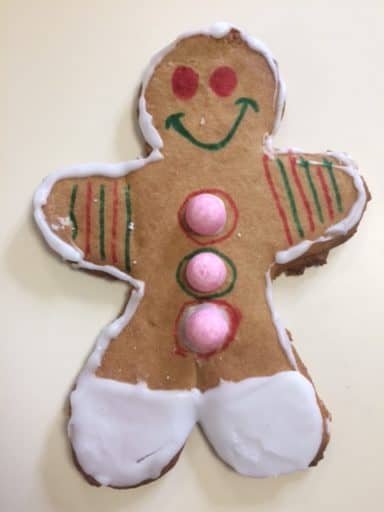
We also made a giant gingerbread man biscuit for our play, it was so yummy!
PSHE (Personal, Social and Health Education)
PSHE is an important part of your child’s national curriculum learning. It is a school subject to help pupils develop the knowledge, skills and attributes they need to keep themselves healthy and safe, in order to be prepared for life and work.
The programme of study aims to develop skills and attributes such as resilience, self-esteem, risk management, critical thinking and teamwork.
During Term 3, we have been learning about resilience, how important is to be flexible and adaptable when going through challenges and changes in life. Resilience is the ability to “bounce back” from difficult experiences, it helps overcome anxiety and build self-esteem. We listened to the story of the Swallow bird, Savannah, who faces so many challenges during her very long and difficult flight from Africa back to Scotland for the nesting season.
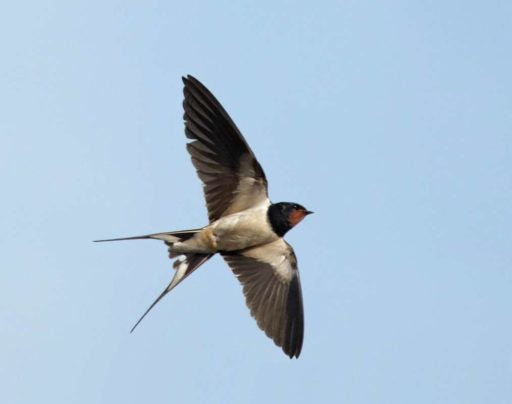
During the follow up discussion, children could relate to Savannah, when they’ve experienced difficult times in their lives. It was interesting to listen to the children talking about their first day at their new schools, how nervous and anxious they were. We shared our own worries and explored many ways to deal with anxiety and feeling alone. It was good to listen to the song Sky Fall by Adele, children could pick out the lyrics: “Let the sky fall , when it crumbles, we will stand tall, face it all together !” It is important that children feel they can ask for help when going through difficult times in life, it makes them feel safer.
Children enjoyed watching Savannah have a drink whilst flying!
We all came to the conclusion that resilience is about trying hard and not giving up at the first hurdle. We agreed that we all learn by making mistakes, and made an acrostic poem (linked to literacy): Fail = First Attempt In Learning.
Science
Float or sink?
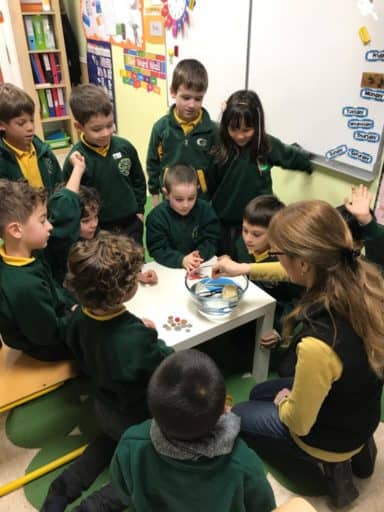
Float or sink? make your hypothesis… 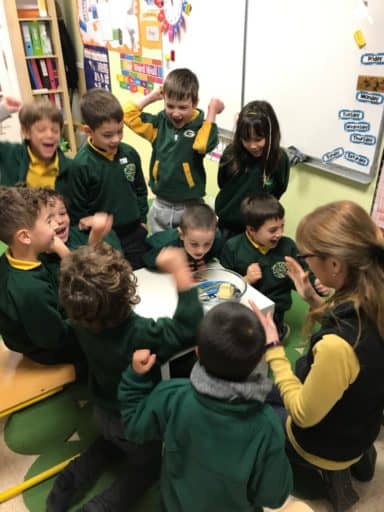
Yessss !! I won, it sinks!
In science this term we have been learning about investigations. The children had many practical science sessions, in class and in the forest. Throughout experiments, we learned the steps for investigations: questions (does the pencil float?), hypothesis (I think the pencil will sink/float) and findings (the pencil actually floats because it is made of wood). The children also learned which objects sink and which float and why. We had to use the previous knowledge learned in the last term, the proprieties of materials. ( Revise and retrieve previous knowledge to master new skills).
How to separate pepper powder from salt?
Watching the particles of pepper “flying” from the plate to the surface of the balloon, was just amazing! We are planning to do many more experiments next term!
Geography/History/Art
During this term we have been studying the ancient Greeks and their culture. We explored the atlas to see where ancient Greece was compared to modern Greece (geography, climate, etc). We learned who the ancient Greeks were and how they changed the world (mathematics, science, medicine, pottery, the Olympics, philosophy and politics). We also compared the life of women in ancient Greece to modern society.
In art, the children have been learning how to make a pot with clay. They have been inspired by the ancient Greeks, and they practised painting Greek patterns on their clay pots! They had to plan their design first on paper, colour in pencils, then discuss how they were going to use the clay (mix with water, flat it down with a rolling pin, then mould the final shape with wet hands). The children have been actively involved in each part of the pot making process, using their skills, intelligence and creativity! Indeed, they had fun, I believe as Albert Einstein said: “Creativity is intelligence having fun!”
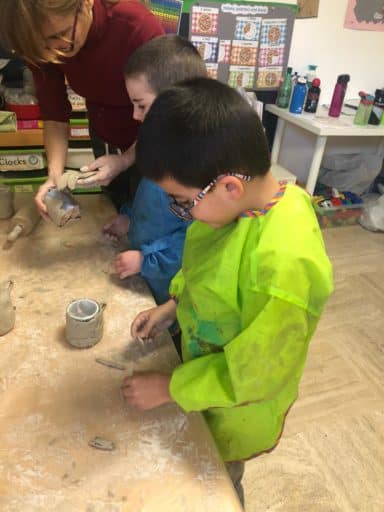
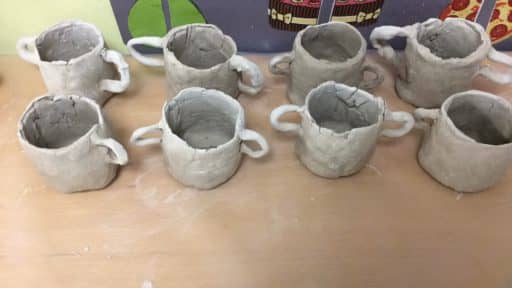
Music
The children in Birch had an assembly with the Maples about body percussion. It was interesting and the children had a lot of fun experimenting with body sounds and noises. We made the sound of rainstorms, wind and thunderstorms using only our bodies.
We also learned about musical instruments, their names and their sounds. The children have been listening to the music from Prokofiev’s ‘Peter and the wolf’. They enjoyed to listen to the story, make inferences, identify the different animals’ instruments and act out the different characters in the story. Finally, with the melodica we practised the basic notes and beats.
Have a great holidays!
Cristina and the Birch class


